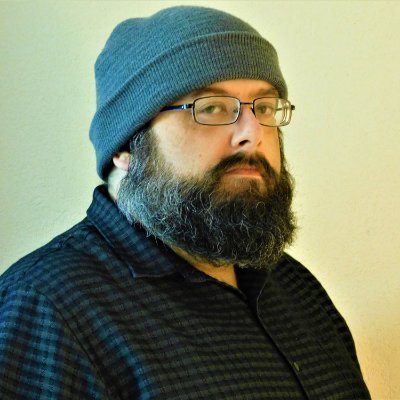How Jimmy Palmiotti & Amanda Conner are coping with the pandemic (and what advice they can give for other creators)
The Florida-based husband-and-wife duo of Jimmy Palmiotti and Amanda Conner on how to make the best of the situation
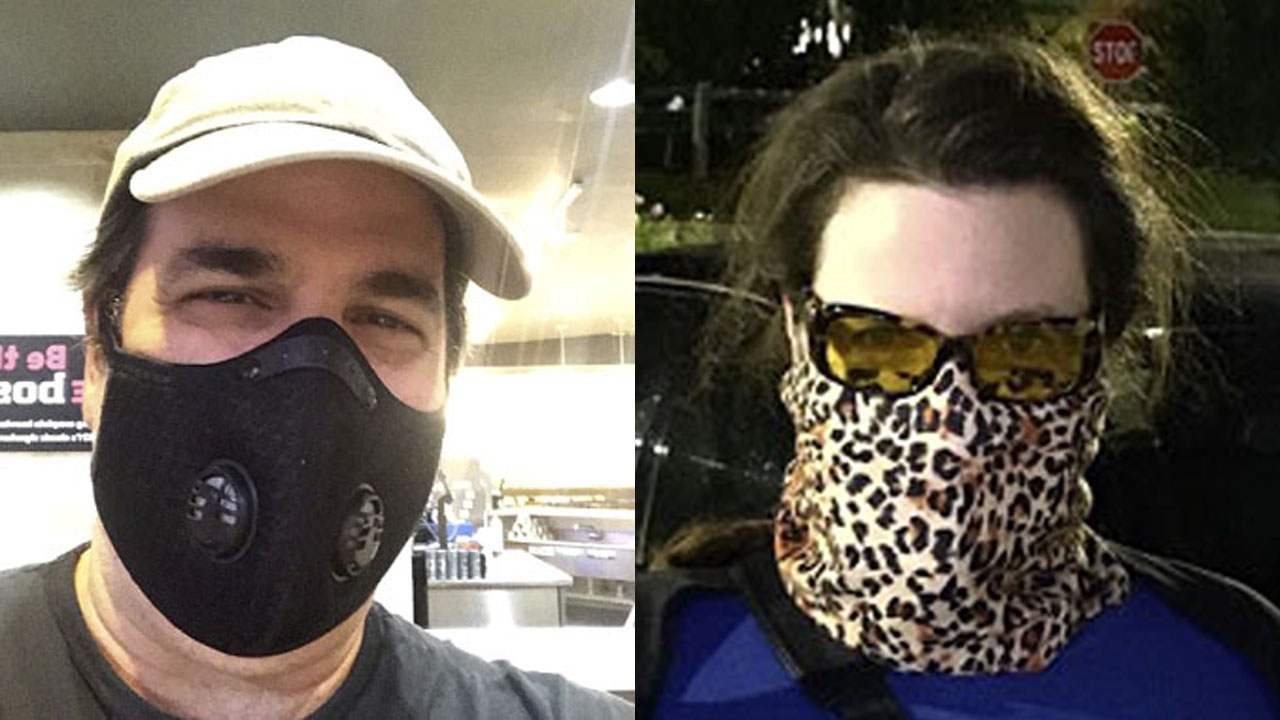
Comic creators (and real-life husband-and-wife duo) Jimmy Palmiotti and Amanda Conner are living through the pandemic, just like everyone reading this.
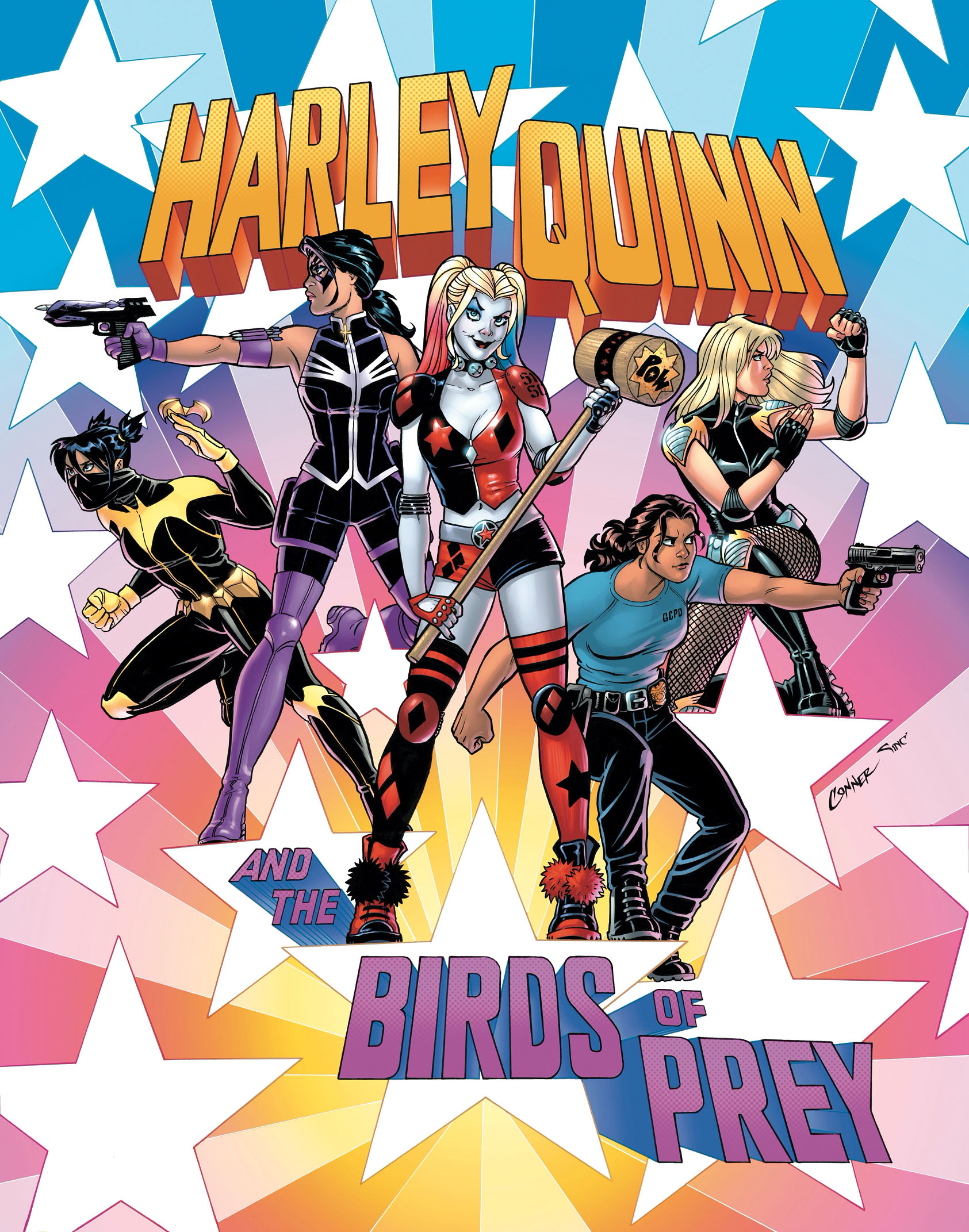
The duo was halfway through their current DC/Black Label series Harley Quinn & the Birds of Prey when the world began to lockdown - in fact, we shared a conversation with them about what could be coming on the floor of Chicago's C2E2 in March - the first (and presumably) last major comic book convention of 2020.
It's been five months since then, and the pandemic continues - with Palmiotti and Conner living in one of the epicenters of the virus' outbreak, Florida. But they tell us they're safe, they're taking precautions, and have used this time to focus on the work.
But like many working in comics have discovered, the pandemic led portions of the comic industry to shut down, go on hiatus, or simply slow to a proverbial snail's pace. So what do you do? Keep working.
Newsarama reached out to Palmiotti to see how he and Conner are doing in this situation, to find out their perspective (and perhaps, a bit of advice) on what they've learned, and what they can impart to others like them, living through this while working in comics. This interview isn't about a specific book coming up, but simply an independent comic creator sharing a personal side of things and how he's adapted, and how others could as well.
Newsarama: Jimmy, like me you live in Florida... and this COVID-19 pandemic has been 'unique' here, to say the least. How are you and Amanda doing in all of this?
Jimmy Palmiotti: Amanda and I are big believers in research and read up on the science of the virus, how to avoid it, and read the daily updates from Johns Hopkins about new information and discoveries and try to stay away from opinionated politically driven TV news.
Comic deals, prizes and latest news
Get the best comic news, insights, opinions, analysis and more!
We are social distancing, wearing masks, washing our hands, and not going to any business where we have to be indoors with a large crowd as best we can. As well, if we see a business not following guidelines, we just stop going and let our circle of friends know about it.
This is serious business and sadly because of horrible leadership, people are making a lot of stupid mistakes and this thing is just getting worse by the day. It's a real shame on so many levels. It's heartbreaking to hear of all the families that have lost loved ones because of all of this.
Since we live in the crazy state of Florida - part of our hurricane prep is stocking up with the very things we need to have during the pandemic, so we were okay on that end.
Jimmy Palmiotti
Since we live in the crazy state of Florida - part of our hurricane prep is stocking up with the very things we need to have during the pandemic, so we were okay on that end. I had to get some minor surgery recently, so I took a COVID-19 test a few weeks back and it came back negative.
Amanda and I have a friend that runs an emergency room nearby and we get to hear first-hand how dangerous the virus is, so we take it extremely seriously and try to help those around us be safer. In the end, we are doing fine but plan ahead each time we go out. Better safe than sorry…and yes, we vote by mail.
Nrama: How is all of this affecting your writing, editing, project managing, etc.?
Palmiotti: The pandemic has made it harder to function and stay focused for sure. It's all quite depressing with the information coming in daily to try to act like things are normal on any level.
The people working with me and around me are dealing with their own problems and sadly some with sickness and death and trying to function while all this is going on. I have three freelancers in Europe that were giving me updates to their situations each week. A lot of scary information at the beginning, though better now somewhat. Wish the USA could say the same.
Amanda has not hugged her parents since this started and I really miss traveling with Amanda in Europe – something we do between gigs every year. The idea that in a single day 1000 people are dying, is just mind-blowing. I hate these impersonal numbers. With all this going on, who can really focus much?
When I get a lot of bad news, I just want to go to sleep in hopes I wake up and everything is somehow fixed. Wishful thinking for sure. I have been making lists these days of things I have to do and work on and trying my best to push through them. My motivation is not what it used to be for sure.

The thing that is helping the most is focusing on the Pop Kill Kickstarter and having a lot of artist friends without work and putting them on future projects. When someone is waiting for script, I hop to it.
One other casualty is we didn't get to have a movie theatre premiere of Random Acts of Violence, so that sucked. It's showing at a drive-in theatre on the 14th in Fort Lauderdale, but other than that, it will be on Shudder by the end of the month and available now on POD.
Would have been nice to have that theatre experience.
Nrama: This pandemic came just as you and Amanda were an issue or so into Harley Quinn and Birds of Prey. In general, how has the response been from DC and Marvel for you two in going through this pandemic?
Palmiotti: Well, we finished all four scripts in advance and then Amanda still had two issues of the 34-page books to draw, so she has been busy since day one of the virus.
For me, it felt quite different than it has in the past.
I had finished up a secret project at Marvel and was not expecting anything else from them.
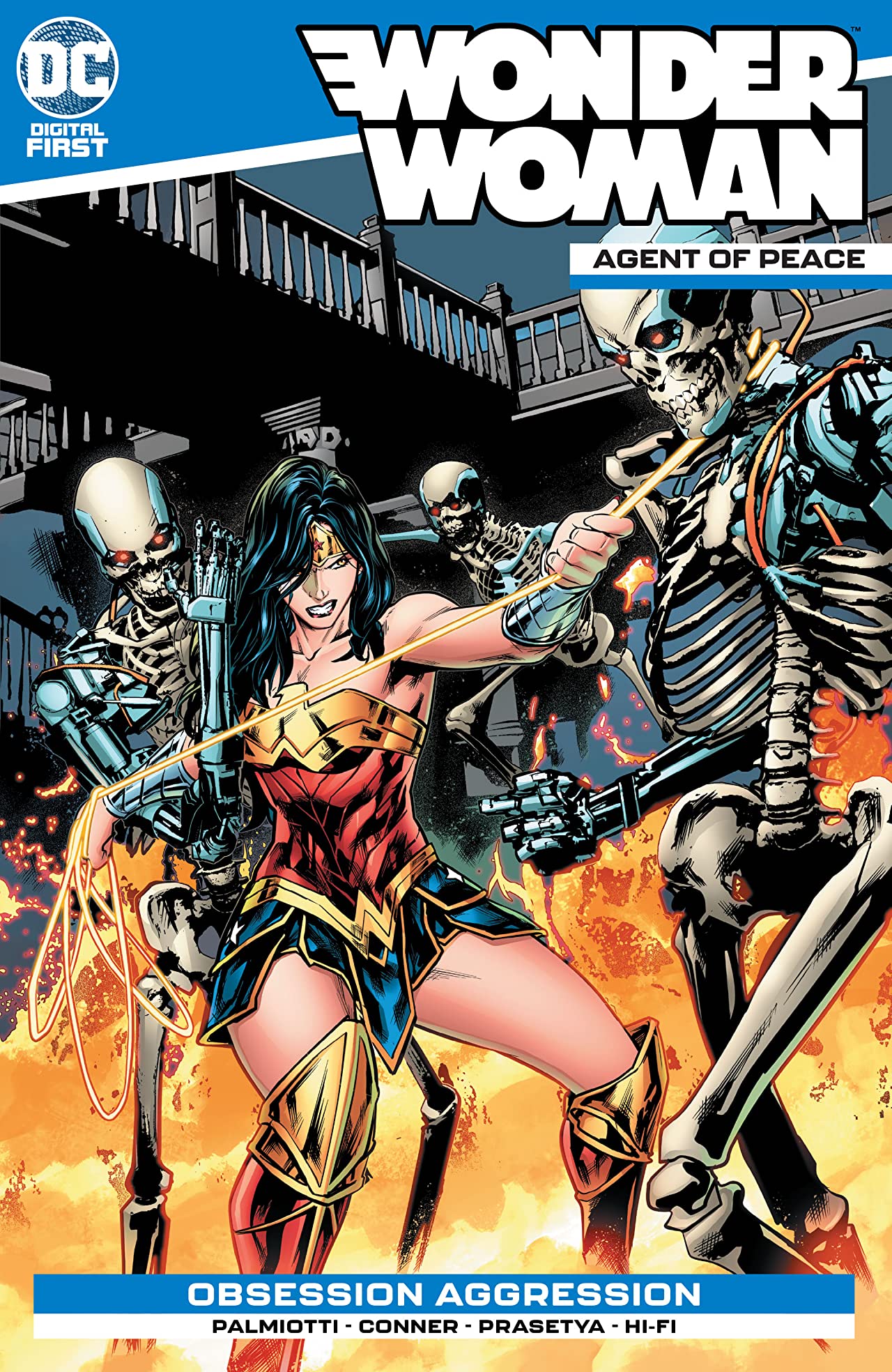
DC had a lot of change going on right before the pandemic and we were just finishing our run on the 100-Page Wonder Woman Giant books which went straight to digital during all this.
Afterward, I pitched a couple of things here and there- fun stuff, new ideas, Powergirl mini, and whatnot, but no bites, so I did what every freelancer does, let everyone I have worked for know I was looking, and if anything came up, I was available.
I found it a bit odd after working so steady for so many years that I was looking at months of no work, but honestly, with so much going o n in the world, it might be the new normal. That's the reality of a freelancer, no matter who you are.
Recently, things started to turn around a tiny bit as I got a story in the Harley Quinn: Black, White & Red series and an eight-page story in an upcoming book.
I had a lot of time on my hands, so I also inked a five-page story for DC - first time in 11 years.
My job is to keep after them and all the companies, and no matter how long you work as a freelancer, it's always the same. You have to hustle, hustle, and hustle some more. There is no sure thing anywhere in this business- even with a contract. I love this job, but job security is not a high point, that's for sure.
Nrama: You're a freelancer - working from gig to gig, paying your own insurance, filing your 1099s, paying your quarterly business taxes, the whole thing. With everything that's happened, how is it for you to be a sole proprietor so to speak in this market?
Palmiotti: The shitty part of being freelancers is that we pay our own medical coverage out of pocket and it's a small fortune. Add that to the quarterly taxes and everything else life throws at you, we constantly have to be working, pitching, lining up work, and so on. Since there is no retirement package offered anywhere in comics, it is our responsibility to take care of our own retirement funds and that means putting aside money, something that's not so easy these days.
Amanda and I constantly have to come up with ways to make extra income and I spend a lot of time taking on work outside comics in hopes to bring in some extra income, but that's not an easy thing.
A lot of what a freelancer does is pitch ideas - spend time world-building, and hoping someone is interested, and it's tough - even with an established name - because there are so many outside factors involved - including 100s of other people pitching.
I learned early on not to depend too much on companies, because, in the end, you are only one of many and replaceable. That and the people you have relationships with move on at some point, so you constantly have to start from the beginning with someone new all the time.
I also am a screenwriter and although I co-wrote two features last year, I haven't seen a dime from either yet. I don't even want to get started on how crazy TV and film are.
Amanda and I always have a plan with our future work in and out of comics and we have been trying to connect with our audience since day one, so there are benefits with this that take us outside the normal work relationship. It was and always will be super important to put a face to the people that support us. It's a way of protecting our brand, no matter where we work.
We know the audience for our work is not huge, but the people that enjoy our stuff - well, we make sure they are treated the best way possible and we keep delivering the work they continue to enjoy. It's our insurance in a way and we really adore these individuals.

Newsarama: In all of this, you already have a beachhead of your own - an active social media presence, a brand name (Paper Films) with a website and store, as well as a regular cycle of Kickstarters, with one underway now for Pop Kill #2. Has that been a benefit in all this?
Palmiotti: The benefit of having Paperfilms.com is that on some level, Amanda and I can control our own destinies and not be so dependent on others.
I've been working fulltime in comics since 1991 and have seen this industry change so many different ways and my takeaway from all of this was you need to own some of what you create, understand that no one owes you a thing, and on some level, being a freelancer means you are always on your own.
Remember, I co-owned a comic company [Event Comics] before Paperfilms, co-created a brand for Marvel with Marvel knights, created an imprint for a magazine company [Black Bull] and watched some of the most talented people in comics go through hard times because they were too dependent on one source of income.
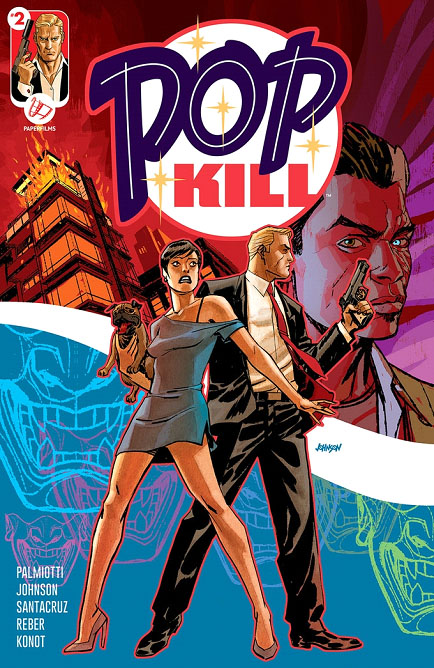
With the Paperfilms website, I can offer people a way to get autographed prints, Limited exclusive comics, and original art directly from us as well as digital downloads of our books. With the Kickstarters, the current one (number 14 for me) is Pop Kill with Dave Johnson and Juan Santacruz.
Pop Kill about competing soda companies that hire a spy to steal a secret recipe and the madness he gets into when he tries to turn a female scientist against the company she is loyal to. It's part James Bond, part madness, and all adult.
With the Kickstarters, I get to know my audience, what they look for in my work, and get direct feedback to the kinds of work they want to see from me. They vote with their support and dollars and I'm blessed to have this many wonderful people supporting my madness.
I think the future is all about creators stepping out and making a name for themselves and focusing on their own brand. I am seeing less and less die-hard comic fans that only buy one company. I see people experimenting with what interests them and less of the across-the-board loyalty to the publisher. I myself always followed the creators around, no matter what company they worked for and I think that is going to be our future.
I think the future is all about creators stepping out and making a name for themselves and focusing on their own brand.
Jimmy Palmiotti
Having a place people can go to see and experience your work, and offering a newsletter is super important. With ours, we let the consumer know what we are doing, where we will be showing up, and offer discounts and coupons for products we sell. I think the more of this we see, the healthier this industry will become.
Nrama: Further to that, let me ask: you talk to creators - any tips you can give them for preparing for unusual times such as these?
Palmiotti: My go-to has always been to plan ahead for bad weather and make sure to stay in touch with the people you interact with, try not to do negative press or bad mouth anyone, including other professionals… and get your work in on time.
The trick past the talent is to understand that when you are late or the least bit difficult, the editor just goes to the next person. Try your best to do your best, not be a problem, and talk up your coworkers and companies as best you can. Slow down things, focus on the work, and have integrity. Treat people like you want to be treated. We are a small business, if you are difficult - badmouth others publicly and so on - people remember it, and the people in charge really do not want more problems in their lives. Let the work speak for you and stay aggressive best you can.
There are always days where it seems a bit hopeless - and on those days, take a break and give yourself room to breathe.
Nrama: You're a friendly face at conventions every year. How many did you attend in 2019, and how's it been for you with far far less going on now?
Palmiotti: I think Amanda and I did about eight in 2019, as well as a bunch overseas.
In 2020, we did one - C2E2 and it was insanely busy for us. We knew C2E2 would be our last for 2020, even though we were booked for about eight others for 2020 - all have been cancelled.
We totally miss seeing the fans, the fellow pros, and the dealers at the shows. Over the years, a lot of these people have become friends - people we see yearly that we love interacting with. The fans at the shows are just spectacular people and we have seen them get married in front of us, bring their newborns by to show off, and watched them grow up to be smart kids with amazing parents. These are all special moments we really miss like hell.
That all said, we've been cutting back over the years and totally cutting out the conventions that do not treat the comic book professionals as well as other guests. We keep hoping that will change, but until then, we have done a lot of smaller shows that have been just as much fun, if not more. More people does not always mean better cons, that's for sure.
Nrama: Let's talk more about the 'soft skills' part of working conventions. Conventions have been trying to replicate the convention experience online, but you're not meeting people, bumping into people, etc. With the absence of that, how are you feeling it?
Palmiotti: Well, I have a lot of people I stay in contact with, so we talk a lot about the industry and such and that keeps me partly in the loop.
The other thing is my office is located in a comic shop and it's a big one with a huge staff, so they keep me up on buying trends and news all the time.
That all said, I miss the hell out of seeing my usual suspects and close friends in the business. A lot of my favorite times are after hours with the people I have met and grown to love over the years. The time we can compare notes of the day, talk about the business, and especially Comic-Con International: San Diego where I would meet up with friends from all over the world.
It sucks on so many levels, but I have a feeling next year we all will come back safer, healthier, and hopefully a bit wiser in the end.
Chris Arrant covered comic book news for Newsarama from 2003 to 2022 (and as editor/senior editor from 2015 to 2022) and has also written for USA Today, Life, Entertainment Weekly, Publisher's Weekly, Marvel Entertainment, TOKYOPOP, AdHouse Books, Cartoon Brew, Bleeding Cool, Comic Shop News, and CBR. He is the author of the book Modern: Masters Cliff Chiang, co-authored Art of Spider-Man Classic, and contributed to Dark Horse/Bedside Press' anthology Pros and (Comic) Cons. He has acted as a judge for the Will Eisner Comic Industry Awards, the Harvey Awards, and the Stan Lee Awards. Chris is a member of the American Library Association's Graphic Novel & Comics Round Table. (He/him)
